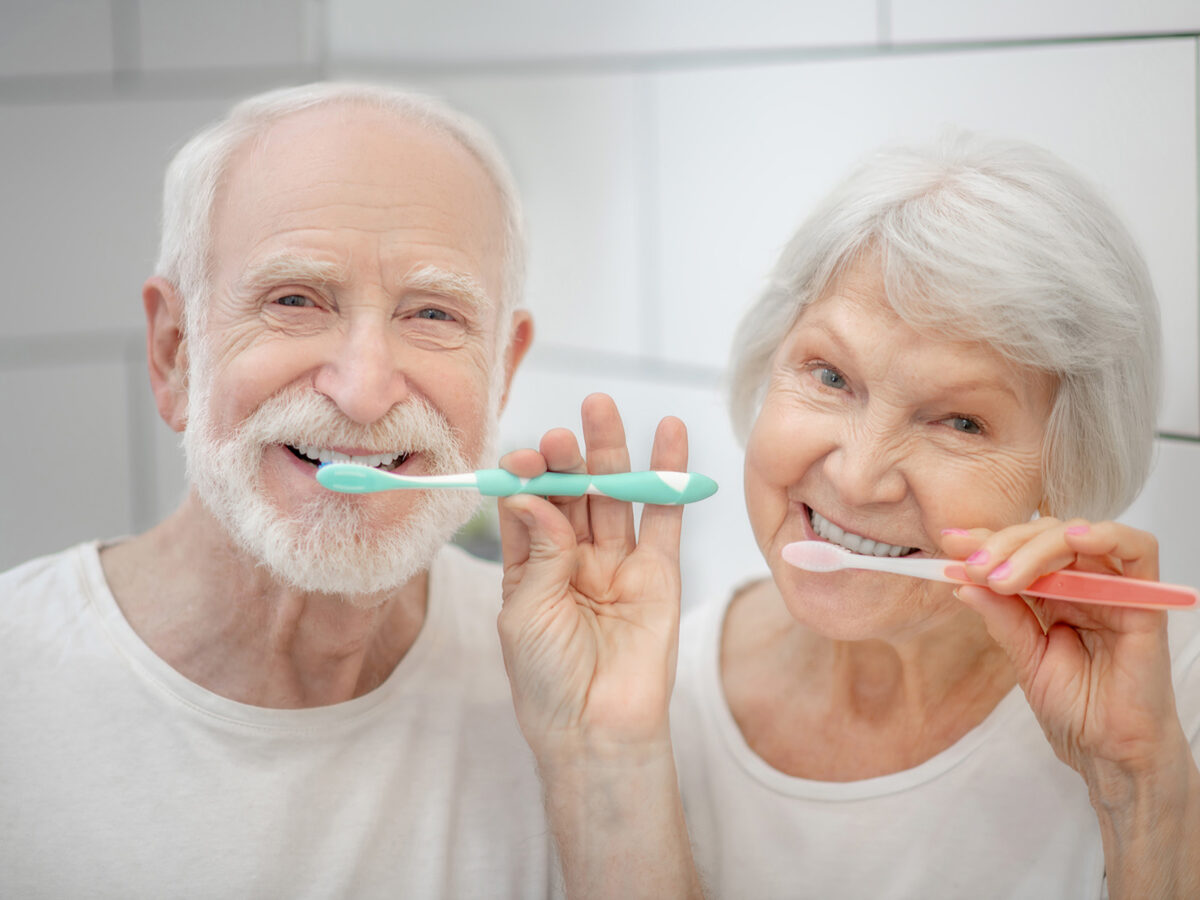Blog
Dental hygiene tips for healthy teeth & gums

Aging Gracefully With Good Oral Health: Senior Dental Care Guide
As we age, our oral care needs become increasingly significant. Whether you’re a senior or caring for an elderly loved one, it’s crucial to prioritize dental health. Regrettably, many seniors neglect their dental care, believing it’s less critical than in earlier years. However, maintaining good oral health is essential for overall well-being, especially during our senior years.
In this blog, we will delve into the significance of senior dental care and its benefits.
Importance Of Regular Dental Checkups
One primary reason dental care is vital for seniors is the heightened risk of tooth decay and gum disease. Aging can reduce saliva production, crucial for protecting our teeth and gums. Moreover, medications commonly prescribed to seniors can have side effects impacting overall oral health.
By incorporating regular dental check-ups, daily oral hygiene practices, and a nutritious diet, seniors can maintain optimal dental health throughout their golden years. Proactive measures can ensure a healthy mouth and a confident smile for years to come.
Neglecting oral care can lead to complications, including tooth loss, gum infections, and systemic health issues. Poor dental health can contribute to heart disease, diabetes, and respiratory infections in seniors.
Common Dental Conditions in Older Adults
As we age, we might encounter various dental conditions, including:
Gum Disease (Periodontal Disease): More prevalent in older individuals, gum disease ranges from gingivitis to periodontitis. Factors like poor dental hygiene, smoking, chronic diseases like diabetes, and certain medications can exacerbate gum issues. Regular dental cleanings and oral hygiene are essential for gum health.
Dry Mouth (Xerostomia): Common in seniors due to medications, radiation treatments, or natural aging, dry mouth can cause discomfort and dental issues. Staying hydrated and using saliva replacements or dentist-prescribed medications can alleviate symptoms.
Tooth Loss: Often resulting from dental decay, gum disease, or natural aging, missing teeth can impact speech, eating, and self-confidence. Solutions like dentures, bridges, and implants can restore smiles and functionality.
Dental Sensitivity: Aging can heighten sensitivity to hot and cold foods and drinks. Receding gums and enamel erosion expose sensitive tooth areas, like roots. Professional treatments and sensitive toothpaste can help.
Medication-Related Issues: Some medications can impact dental health, causing dry mouth, gum overgrowth, or taste abnormalities. It’s essential for seniors to consult both their doctors and dentists about potential side effects.
Dental Care Tips
By adhering to these guidelines, seniors can address common dental issues and promote optimal oral health:
- Brush Twice Daily: Use a soft-bristle toothbrush and fluoride toothpaste for effective plaque removal.
- Floss Regularly: Flossing cleans areas between teeth that brushes can’t reach.
- Rinse with Mouthwash: Antiseptic or fluoride mouthwash can prevent bacteria buildup and strengthen enamel.
- Hydrate for Saliva Production: Regular water intake promotes saliva production, which naturally cleanses the mouth.
- Clean Dentures Properly: If you wear dentures, clean and soak them daily, following your dentist’s guidelines.
- Quit Tobacco: Tobacco use increases the risk of gum disease and oral cancer.
Final Overview
Regular dental visits, ideally every six months or as recommended by your dentist, are crucial for seniors. These check-ups promote optimal senior dental care and provide an opportunity to address any concerns or questions about dental routines. Proper dietary choices can provide the essential nutrients for strong teeth, resilient gums, and a radiant smile.


